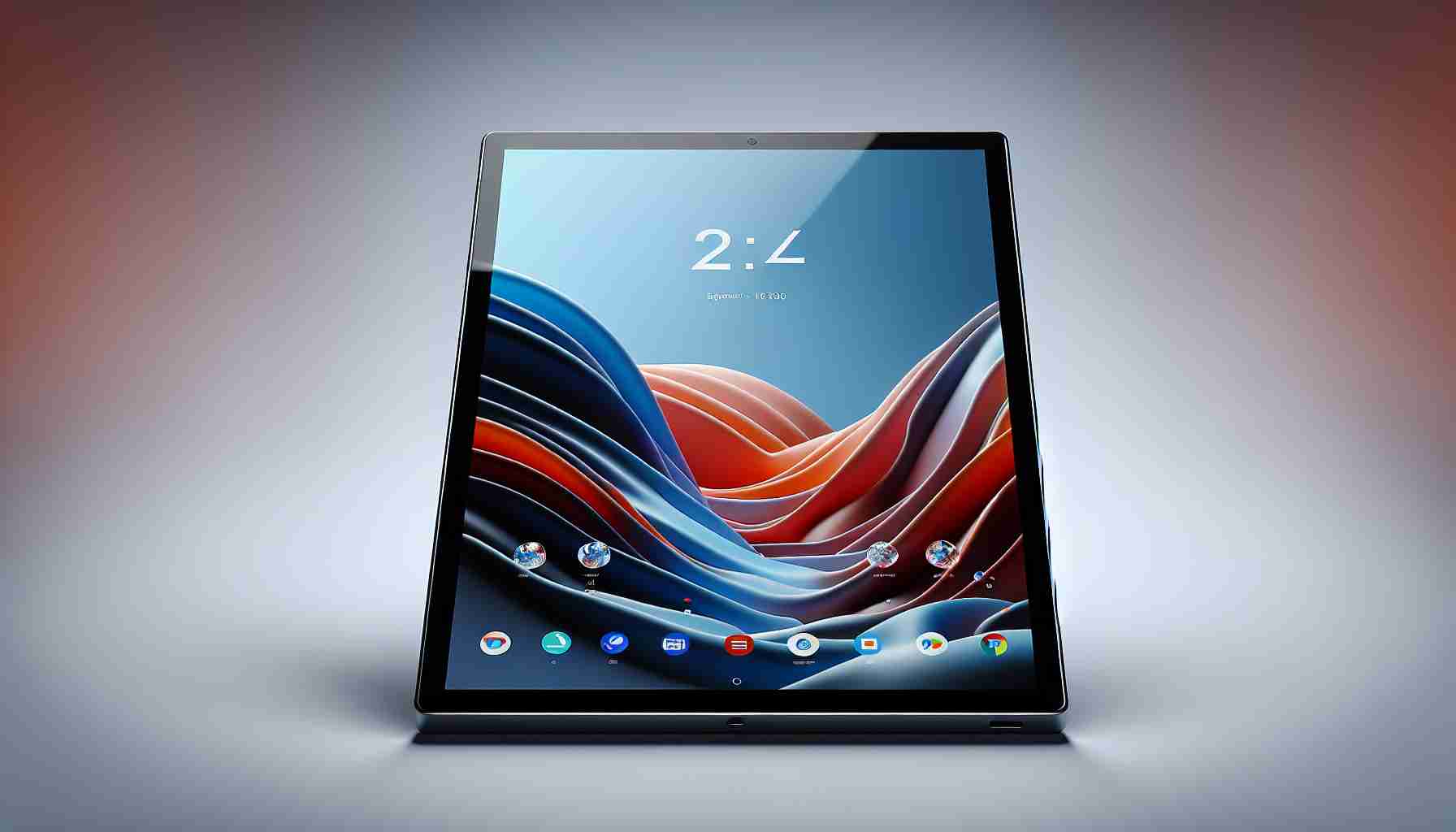Google’s March into New Tech Continues with a Possible Tablet Refresh
The tech giant Google is not just making waves with its smartphone series; it’s also gearing up to potentially renew its presence in the tablet market. As enthusiasts eagerly await the reveal of the highly anticipated Pixel 9 series, there’s also buzz around an update to the existing Pixel tablet.
Recent developments hint that the next iteration of the Google Pixel Tablet won’t be a full-blown successor, but rather, a refreshed version of the original. While details are based on speculation, credible sources indicate Google’s plans to release two tablets codenamed ‘Clementine’ and ‘Kiyomi.’ With a looming Google I/O event, attention is turning to the likelihood of a new tablet unveiling.
Instead of equipping the new tablet with the advanced Tensor G4 chip slated for the Pixel 9, it appears that Google will maintain the Tensor G3 SoC for the tablet, aligning it with the processing power of the upcoming Pixel 8a phone.
The decision to exclude the charging dock, previously bundled with the original Pixel tablet, suggests a design revamp and potential cost savings for consumers. As buyers will have the option to buy the dock separately, this could position the refreshed Pixel Tablet as a more accessible device to a wider audience.
While the tech community awaits official confirmation from Google on these details, excitement is building for what the forthcoming I/O event may unveil in terms of hardware advancements and strategy shifts within the company’s product lineup.
Key Questions and Answers:
Q: What is the Google Pixel Tablet?
A: The Google Pixel Tablet is a product from Google that operates in the tablet market, a space that features touch-screen based mobile devices larger than smartphones but smaller than laptops. It is designed to provide users with a portable and versatile computing experience.
Q: Why is there speculation about a new Google Pixel Tablet?
A: Speculation arises from various credible sources and leaks that hint Google is working on updating its tablet lineup. The anticipation typically grows as a major company event, such as Google I/O, approaches.
Q: What are the codenames associated with the new Google Pixel Tablets?
A: The two tablets are reportedly codenamed ‘Clementine’ and ‘Kiyomi.’
Q: Why is the tablet expected to use the Tensor G3 SoC instead of the newer G4 chip?
A: The decision is possibly due to strategic product placement in terms of performance and pricing. By aligning it with the upcoming Pixel 8a phone, Google might be positioning the new Pixel Tablet as an affordable yet capable device.
Q: What is the significance of the charging dock being sold separately?
A: Removal of the charging dock from the standard package could lead to cost savings, which might lower the entry price for consumers interested in a new tablet.
Key Challenges or Controversies:
One of the critical challenges for Google in the tablet market is to differentiate its product in a space dominated by the Apple iPad. The incorporation of unique features, competitive pricing, and seamless integration with Google’s ecosystem are crucial factors for success. Google’s previous tablet endeavors, like the Pixel C and Pixel Slate, received a mixed reception, which puts additional pressure on the company to succeed with the new Pixel Tablet.
There can also be controversy surrounding the decision not to include the latest chip in the tablet. Some users might see it as being shortchanged technology-wise, even though it might make the product more affordable.
Advantages and Disadvantages:
Advantages:
– The tablet market is less saturated than the smartphone market, which could allow Google to carve out a niche.
– A focus on integration with Google’s services could provide an enhanced experience for users invested in the Google ecosystem.
– Potential cost savings from not including the charging dock could make the tablet more attractive to price-sensitive consumers.
Disadvantages:
– Tablets, in general, face stiff competition from large-screen smartphones and compact laptops.
– The decision to use an older chip might result in less impressive performance compared to competitors using more advanced hardware.
– Google’s tablet history is not as strong as competitors like Apple, which requires overcoming reputation barriers.
For more information about Google and its array of products and services, you can visit their main website at Google.
The source of the article is from the blog enp.gr
